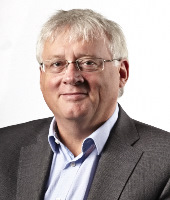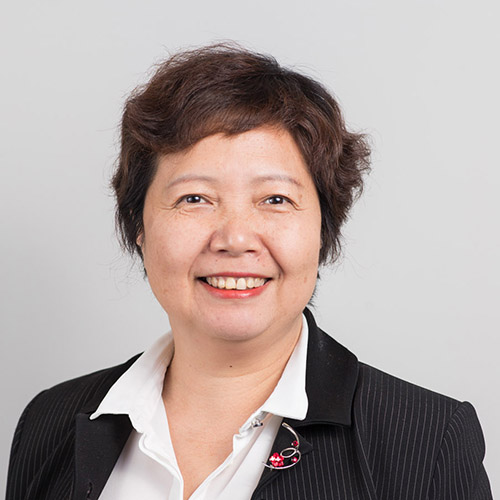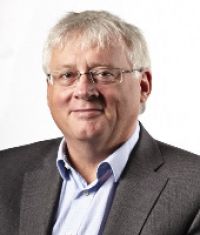Centre Co-Director
About us: our vision
Cities are engines of economic growth. They partner with industries, organisations and other urban centres, creating complex networks that exchange information, build capacities, expand resources and enhance revenues. Yet people in urban communities face a variety of complex challenges, from changing demographics and the impacts of climate change to resource crises and global competition. Acknowledging that no single approach, technical or otherwise, is enough to address these issues, the Networks and Urban Systems Centre (NUSC) brings together multi-disciplinary expertise to explore the expanding frontiers of urban challenges. Our mission is to improve the quality of life, competitiveness and sustainability of urban communities in the UK and around the world.
We aim to:
- Drive competitiveness and sustainability across production systems, urban systems, business ecosystems, business models and global value chains.
- Embrace an interdisciplinary approach, deploying frontier methods including advanced quantitative and qualitative approaches.
- Engage in international academic collaboration, in leading projects, conferences and journals.
- Develop our members’ academic careers, with a strong focus on our PhD students and early career researchers.
- Provide training for academics and professionals and conduct commissioned work.
Our impact on the world
Our core objective is to make a positive impact on the world by discovering, applying and sharing knowledge that can improve connections within and between communities, enabling them to prosper over the long term. This means finding ways to organise and develop systems that will provide sustainable benefits over the long haul, in place of short-term expediency. The main societal challenges addressed by the Networks and Urban Systems Centre are:
- effective and sustainable organisational and inter-organisational designs.
- effective and sustainable distributed production systems, clusters and value chains.
- healthy and high-quality urban ecosystems.
- business models for technologically transformed social systems.
Through the application of simulation and modelling, NUSC seeks to contribute several UN Sustainable Development Goals (SDGs). Examples include:
- Our pioneering work to map global value chains using rigorous quantitative approaches, which supports Industry, Innovation and Infrastructure (SDG9), as does our research on home- and hybrid-working structures for fostering collaboration.
- Our explorations of less environmentally harmful transport and tourism sectors, along with research into ways to reinvigorate the high street, which support Sustainable Cities and Communities (SDG11).
- Our support for Responsible Consumption and Production (SDG12) through our research into the factors motivating people’s adoption of EVs (electric vehicles).
Who we are
An interdisciplinary approach
NUSC draws on a wide range of specialisms, including mathematics, physics, engineering, computer science, sociology, psychology and organisational behaviour, economics, operations research, management and logistics. At the same time, our members employ diverse multiple and mixed methods, from social network analysis, network science and complexity theory to linear programming, systems dynamics, machine learning and case study and narrative analytic approaches. Our access to the advanced, rigorous methods, alongside alternative perspectives, enables us to address complex challenges facing urban communities. And, regardless of background, all our researchers share a passion for developing effective and sustainable social systems.
Partners
We are constantly looking to expand our academic and industrial collaboration network and open to different formats of collaborations such as joint PhD projects, research proposals or consulting. Among higher education institutions, our current UK collaborators include the Universities of Cambridge, Exeter, Durham, Loughborough, Liverpool, Manchester and Oxford, while our overseas academic partners range from the Universities of Amsterdam and Groningen to Harvard and the South China University of Technology. We also engage in industry and community consultancy projects with major organisations, such as Unilever, Ernst and Young, Northern Trust, South East London Chambers of Commerce, NHS, Defra, Nesta, Pensions Regulator, the Work Foundation and the Institute of Transport and Logistics.
Funding
The work of the Networks and Urban Systems Centre is supported by the Economic and Social Research Council and EU Horizon, among others. We also generate income through consultancies for a range of academic, private, public and NGO partners.
Our research
Tools for seeing the world better
NUSC members test and apply the very latest ‘frontier’ methods, be it social network analytics, advanced systems dynamics or sophisticated AI-based and topic modelling. Our approach to researching networks and urban systems echoes the development of astronomy: just as progressive improvements in telescope design allowed scientists see more of the universe, so advances in the tools and techniques for exploring human relationships are helping our researchers to ‘see’ more of the social world. Most appropriate, given our proximity to the Greenwich Observatory!
Our research can be grouped in five key, interlinked strands:
- Production systems
- Urban ecosystems
- Business ecosystems
- Digital business models
- Global value chains
Production systems
An example of research in production systems is a project identifying the competitiveness of several Italian regional clusters active in the footwear industry. The project, integrating different methodologies and data collection techniques, focused on the complexities associated with the management of a diverse set of interorganisational relations. Another piece of work examined the dynamics of innovation in the London Tech-City industrial cluster from multiple perspectives, looking at the behaviour of individual software developers, the activities of firms and what was happening at the regional level.
Urban ecosystems
Work in this theme includes research for the Dubai Government to transform benchmarking capabilities at 11 government organisations. This led to enhanced performance, improved efficiency and significant cost savings. A further example was the combination of ethnography and social media network analysis in a Peabody-funded project studying resident attitudes to urban regeneration efforts in Thamesmead.
Business ecosystems
The business ecosystems theme explores the conditions needed for sustaining innovation and entrepreneurship. An example is the development of a technique to understand how social networks in a workplace can promote innovation and performance. The results were used by 300 companies, including large corporates in UK and US, and have transformed human resources management practices. Another example is the €3.9 million EU 'FACET' project on how those in tourism and leisure sector can gain practical knowledge and experience in the transition from linear to circular practices.
Digital business models
This research strand looks at business models for technologically transformed social systems. Examples of this work include projects on cryptocurrency entrepreneurs, distributed finance and vehicle sharing schemes.
Global value chains
Here, we examine distributed and overlapping production systems, such as clusters and supply and global value chains. Important work in this area, are our new methodologies for quantifying value chains, identifying points at which most value is added. An major project is the EU-funded €5 million Circular Economy Innovations for Resilient, Competitive and Sustainable Battery Technologies (CIRCUBATT), aims to revolutionise the European battery sector by advancing sustainability, efficiency, and competitiveness.
Publications/Output
Teaching and training
Members of the Networks and Urban Systems Centre provide taught courses on transport and logistics, innovation, mathematical modelling and business analytics to the business and management programmes for undergraduates and postgraduates. Meanwhile, we proactively encourage and support PhD supervision and training, and systematically mentor early and mid-career colleagues.
NUSC also offers a range of external training opportunities for health professionals, management consultants, digital scientists, educationalists and community professionals. In addition, since 2007 we have hosted annual, week-long winter and summer schools in network methods aimed at early career researchers from other higher education institutions, where we cover introductory and advanced research techniques, including frontier methods.
News and events
NUSC is an active academic research centre. Our members frequently speak in major international scientific conferences (e.g., Academy of Management, European Group on Organisational Studies, International Network for Social Network Analysis), publish in top international journals such as American Journal of Sociology, Organization Science, Organization, Organisation Studies, Organizational Research Methods and serve on the editorial boards of Human Relations, Journal of Business Ethics, Forum for Social Economics, Sustainability, Journal of Tourism Futures, Sustainable Manufacturing and Service Economics, International Journal of Tourism Cities, Journal of Open Innovation: Technology, Market, and Complexity and committees of the International Network for Social Network Analysis among many others.
We also organise regular seminars acquainting staff with others’ research and interests as well as visiting presentations from world-leading experts in the field. In addition, we host prestigious international and conferences and workshops. Recent examples include:
- International Conference on Emerging Technologies for Sustainable Innovation, June 2025
- NUSC Summer School in Network and Data Science, June 2025
- GameBall Rally: Web3 and Blockchain Workshops, Oct 2023
- NUSC Summer School in Social Network Analysis, July 2023
- Distributed Finance Workshop, Oct 2022
- European Social Networks Conference, Sept 2022
- Academy of International Business (UKI) Conference, April 2021
- Smart Urban Policy Futures – International workshop, held annually
Directors
Deputy Director
Experts
Dr Yasser Abdallah
Lecturer in Business. External Engagement Co-Lead, EBC.
Professor Dotun Adebanjo
Professor of Supply Chain Management
Dr Abdul Ali
Senior Lecturer in Operations and Supply Chain Management
Parissa Baig
Lecturer in Strategic Entrepreneurship
Rhonda Best
Teaching Fellow in Business Management and Education
Dr Alistair Bogaars
Senior Lecturer in Project Management
Dr Karen Brickman
Head of School for Business, Operations and Strategy
Dr Kim Bui
Senior Lecturer in International Business
Professor Jin Chan
Professor of Sustainable Strategy, Innovation and Entrepreneurship
Dr Guodong Cheng
Lecturer in Business Management
Professor J. Andres Coca-Stefaniak
Professor of Tourism and Sustainability
Dr Francisca Da Gama
Senior Lecturer in International Business
Ekoua Jose-Maria Danho
Lecturer in Entrepreneurship and Innovation
Dr Bálint Diószegi
Lecturer in Network Science
Dr Carlos F.A. Arranz
Senior Lecturer in Business Operations
Dr Nicky Garsten
Associate Professor in Non-Profit and Business Communications and Co-Leader of the Personal Professional Development Curriculum Redesign in the Business Faculty
Dr Sara Gorgoni
Associate Professor in Economics
Dr Ilaria Guandalini
Academic Portfolio Lead – Operations and Supply Chain, Founding Lead – MSc Project Management Programme, Senior Lecturer in Business Management
Dr Andrew Hansen-Addy
Senior Lecturer in Business Management
Dr Shoaib Haq
Senior Lecturer
Dr Ye Hou
Lecturer in Business Information Systems
Dr Zheyuan Hu
Senior Lecturer in Business and Management
Dr Jingxi Huang
Lecturer in Strategy and Sustainability
Dr Quang (James) Huy Duong
Senior Lecturer in Business Operations
Professor Petros Ieromonachou
Associate Dean, Research & Knowledge Exchange
Dr Abdullah Ijaz
Lecturer in Business Management
Dr Jie Jiang
Senior Lecturer in International Business and Strategy
Dr Puspa Jirel
Lecturer in International Business Management
Dr Sathees Kunjuthamby
Senior Lecturer in Business Management
Natasha Lawlor-Morrison
Lecturer in Strategy and Leadership
Dr Jiawei Li
Lecturer in Entrepreneurship and Innovation
Dr Yan Li
Lecturer in Strategic Project Management
Xinrui Liu
Lecturer in Entrepreneurship and Innovation
Dr Zheng Liu
Associate Professor in Logistics and Operations Management
Dr Anju Maharjan
Lecturer in International Business
Dr Azar MahmoumGonbadi
Lecturer in Business Analytics
Dr Di Mao
Lecturer in International Business Strategy
Raluca Marinciu
Senior Teaching Fellow and Deputy Programme Leader
Dr Sylvester Mujakperuo
Senior Lecturer, Programme Leader MBA Global with Placement
Dr Neela Mühlemann
Senior Lecturer in Human Resources and Organisational Behaviour
Dr Duy Tan Nguyen
Lecturer in Business Logistics and Transport
Dr Doreen Nielsen
Senior Lecturer, Learning Technology
Dr Grace O'Rourke
Senior Lecturer of Strategy and Sustainability
Dr Oyinkansola Odunjo
Lecturer, Business Management
Dr Kunle Oguntegbe
Lecturer in Supply Chain Management
Dr Anna Piazza
Senior Lecturer in Economic Sociology
Dr Vladimir Popov
Research Assistant
Dr Sadiye Eylul (Ellie) Sadanoglu
Programme Leader MA International Business; Senior Lecturer in International Business Strategy
Dr Mohit Kumar Singh
Lecturer in Transport and Logistics Management
Dr Fiona Sun
Lecturer in Business Administration/Management
Dr Hetty Sun
Associate Head of School - Research and Knowledge Exchange Executive Business Centre
Aaron Tan
Senior Teaching Fellow
Liting Tan
Teaching Fellow in Project Management
Martina Testori
Lecturer in Economic Sociology
George Tsekouras
Associate Professor on Innovation and Entrepreneurship
Dr John Tull
Lecturer in Business Management
Chryssi Tzanetou
Teaching Fellow in Business Management
Dr Srinidhi Vasudevan
Senior Lecturer in Business Management
Dr Lucien von Schomberg
Senior Lecturer in Creativity & Innovation
Dr Dian Wang
Senior Lecturer in Marketing, Programme Leader BA H Business Management (Marketing) and BA H Business with Marketing (Direct Entry)
Dr Haining Wang
Lecturer in Business Analytics
Jing Wang
Lecturer in Executive Education
Rui Wang
Lecturer in International Business
Yanga Wu
Lecturer in project management
Mao (Maggie) Xu
Lecturer in Business Operations and Supply Chain Management
Dr Shuai Zhang
Senior Lecturer in Business Strategy
Our Research
We all have the power to make a positive difference no matter how small the action

Connected Cities Research Group
Our research group focuses on innovation management, urban accessibility and equity, ICT for transport, logistics and closed loop supply chains, business eco-systems, tourism management, strategic management for city and regional authorities.

Centre for Business Network Analysis
A research centre applying the techniques of organisational network analysis to a wide range of business problems, re-conceiving individual firms, organisations and markets as structured relationships.

Projects
NUSC has a number of research projects in four crossing cutting themes, funded by internal and external sources.




































































